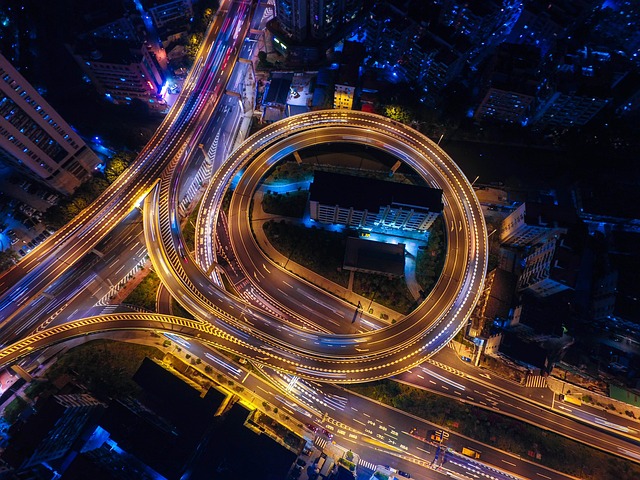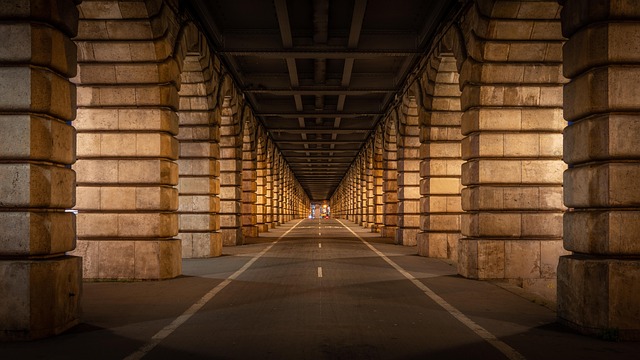
Karachi, a vibrant bustling metropolis in Pakistan, faces unique waste management challenges due to rapid population growth. Inefficient collection systems, limited recycling facilities, irregular schedules, and a shortage of personnel contribute to street clutter, environmental pollution, and health hazards. The city's geographical location exacerbates the problem, as improper waste disposal can contaminate water sources. To address these issues, Karachi is implementing advanced waste management strategies involving local authorities, community involvement, smart recycling systems, and innovative technologies like AI-driven sorting. By focusing on sustainable practices along University Road, the city aims to reduce its environmental impact, embrace a greener future, and set an example for Pakistan's urban centers.
Karachi, as Pakistan’s vibrant metropolis, faces unique challenges in waste management, particularly along University Road. This article delves into the intricate web of issues, exploring current systems and infrastructure in place, while highlighting the pivotal roles of local authorities and community initiatives. We uncover innovative solutions and best practices to implement, offering insights into potential future developments for a more sustainable Karachi. Join us as we navigate towards a cleaner, greener city.
- Understanding Karachi's Waste Management Challenges Near University Road
- Current Systems and Infrastructure in Place
- The Role of Local Authorities and Community Efforts
- Innovative Solutions and Best Practices to Implement
- Potential Future Developments and a Sustainable Roadmap
Understanding Karachi's Waste Management Challenges Near University Road

Karachi, as a bustling metropolis, faces unique waste management challenges, especially in areas near University Road. With a population that continues to grow, the city’s waste generation rate has increased exponentially. The primary issue lies in the lack of efficient collection and disposal systems, leading to accumulations of solid waste along streets and public spaces. Inadequate infrastructure, including limited access to recycling facilities, compounds the problem, particularly in densely populated areas like University Road.
The challenges are further exacerbated by irregular collection schedules and a shortage of dedicated waste management personnel. As a result, organic waste often ends up in landfills, contributing to environmental pollution and health hazards. Karachi’s unique geographical location also poses difficulties, as improper waste disposal can lead to water contamination and impact the city’s fragile ecosystem. Understanding these challenges is crucial for implementing effective strategies to enhance waste management practices in the area surrounding University Road and across Karachi.
Current Systems and Infrastructure in Place

Karachi, as a bustling metropolis, faces unique challenges when it comes to waste management, especially in areas surrounding University Road. The current system relies heavily on municipal waste collection trucks that regularly ply designated routes to gather garbage from residential and commercial areas. This traditional method, while effective, struggles to keep pace with the city’s rapid growth and evolving waste generation patterns.
The infrastructure includes several centralized dumping sites and landfills located peripherally. These facilities are designed to receive waste from across the city but often face issues like overcapacity, environmental concerns, and poor management. In recent years, Karachi has also witnessed the emergence of private waste management companies offering more efficient collection and recycling services. However, the lack of unified coordination among various stakeholders remains a challenge, impacting the overall effectiveness of waste disposal and recycling efforts in this vibrant city.
The Role of Local Authorities and Community Efforts

In Karachi, the local authorities play a pivotal role in managing waste along University Road and other urban areas. They are responsible for implementing effective waste collection systems, ensuring regular cleaning schedules, and promoting recycling initiatives. These efforts not only maintain the cleanliness of public spaces but also contribute to a healthier environment.
Community involvement is equally vital. Local residents and businesses can significantly enhance waste management by participating in community clean-up drives, segregating recyclables from non-recyclables, and adopting eco-friendly practices. Such collaborative actions can foster a sustainable mindset, reducing the strain on municipal services while creating a more livable and aesthetically pleasing cityscape for all, especially in areas like University Road that witness high footfall and vehicular traffic in Karachi.
Innovative Solutions and Best Practices to Implement

In Karachi, innovative waste management solutions are transforming the way the city deals with its growing trash problem. One prominent practice is the implementation of smart recycling systems that utilize technology to sort and process waste more efficiently. These systems use sensors and AI algorithms to identify different types of materials, improving the quality of recyclables collected. Moreover, community-based initiatives have emerged, encouraging residents to participate actively in waste reduction and recycling efforts.
Best practices include expanding access to recycling facilities, educating the public on proper waste segregation, and promoting the use of compostable materials. The city has also seen success with pilot projects that involve transforming municipal waste into energy through advanced combustion technologies. These initiatives not only reduce the volume of waste ending up in landfills but also contribute to a more sustainable and eco-friendly Karachi.
Potential Future Developments and a Sustainable Roadmap

In the vibrant city of Karachi, where urban development is ever-evolving, it’s crucial to envision a sustainable future for waste management along University Road and its surrounding areas. Potential future developments in this sector could include advanced recycling facilities that harness innovative technologies to increase efficiency and reduce environmental impact. These modern solutions can transform waste into valuable resources, contributing to the city’s eco-friendly initiatives.
A comprehensive roadmap towards sustainability should involve community engagement, educational programs to raise awareness about responsible waste disposal, and the implementation of efficient collection systems. By promoting a circular economy approach, Karachi can strive to minimize landfill usage and maximize resource recovery. This strategic shift will not only benefit the local environment but also serve as a model for other urban centers in Pakistan, fostering a cleaner and healthier future for generations to come.
Karachi’s waste management landscape near University Road presents unique challenges, as highlighted throughout this article. By understanding the current systems, recognizing the efforts of local authorities and community initiatives, and embracing innovative solutions, there is a clear path forward for sustainable improvement. Implementing best practices and exploring future developments, such as advanced recycling technologies and enhanced public awareness programs, can transform waste management in the area. This comprehensive approach ensures a cleaner, healthier, and more vibrant future for Karachi’s university neighborhood and its surrounding communities.






